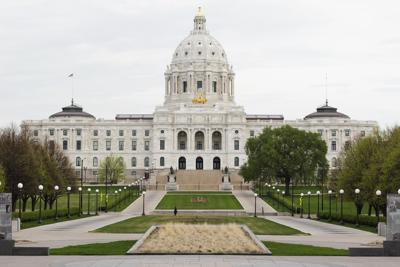MANKATO — Area lawmakers agree a projected $1.6 billion state budget surplus is welcome news, but it’s unclear how that’s going to change the Minnesota Legislature’s budget priorities moving forward.
Legislators say last week’s budget forecast gives a little more breathing room on a variety of issues, from infrastructure to education to police reform. But lawmakers are reluctant to commit to any priorities thus far.
“Much of this is based on one-time money,” Rep. Paul Torkelson, R-Hanska, said.
Democratic Rep. Luke Frederick of Mankato agrees. The forecasted budget surplus assumes Congress will pass a COVID-19 relief bill within the next few weeks, which would include stimulus money for Minnesotans. The budget doesn’t take into account how much of that relief bill will fund local and state government priorities, but Frederick said he’s concerned the surplus may shift if Congress doesn’t come through.
“If there is no movement on the federal level, that changes the ballgame,” Frederick said.
Sen. Rich Draheim, R-Madison Lake, also noted the surprising turnaround.
“When you look at it, it’s a $2.9 billion swing in three months,” he said.
Republicans say they’d like to resist raising taxes in light of the surplus, while at the same time keeping funding levels relatively steady for a variety of issues and investing in supports for people and businesses impacted by the ongoing COVID-19 pandemic.
Democrats say the surplus has eliminated the need to raise taxes and make potentially serious cuts to state agencies. Yet they’d also like to see more investments made in key state priorities.
“I would say generally the things we thought might not be more affordable are more affordable-looking now,” Sen. Nick Frentz, DFL-North Mankato, said.
That will likely include offsetting taxes collected on federal COVID-19 relief loans. Minnesota expects to collect taxes on federal Payroll Protection Program loans issued to Minnesota businesses last year, which a number of Democrats and Republicans oppose. Lawmakers say the surplus means an opportunity for Minnesota to conform to federal tax rules on the loans, which would cancel out about $440 million in taxes for close to 100,000 businesses.
A Senate proposal passed through a committee Tuesday with an amendment that would also cancel out some taxes for people who collected COVID-related federal unemployment aid last year as well.
“This surplus will ensure that we can take some additional steps to help some families and some businesses that are hurting,” Rep. Susan Akland, R-St. Peter, said.
The surplus could mean also more opportunities for area bonding projects.
The Legislature passed a $1.9 billion bonding bill last year, which contained funding for several local projects. Gov. Tim Walz has proposed a $518 million infrastructure bill this year but emphasized more statewide spending than smaller community projects.
Yet several south-central Minnesota projects are back for discussion this year as local cities, higher education institutions and other organizations seek more funding.
Mankato received about $7.2 million out of a $16.6 million request to work on Minnesota River riverbank stabilization, which would include a water reclamation facility to help protect nearby wells.
Mankato also is requesting funding for about 100 acres of land west of Monks Avenue to Rosewood Pond on the southern side of town. City officials hope to turn at least 40 acres back into wetlands as part of a water quality restoration project to help reduce sediments, phosphates and nitrates into the Minnesota River.
The Department of Human Services is looking for more support to renovate the Minnesota Sex Offender Program facilities at the St. Peter Regional Treatment Center.
North Mankato officials hope to get the remaining $8.5 million out of a $10.5 million request from the state for a proposed indoor recreational center at Caswell Park.
Area lawmakers say their biggest priority is Minnesota State University’s $6.7 million request for a proposed redesign of Armstrong Hall. The university plans to demolish the building and rebuild it at about two-thirds of its size for about $100 million, which university officials say is cheaper than trying to renovate the decades-old building.



























Commented
Sorry, there are no recent results for popular commented articles.